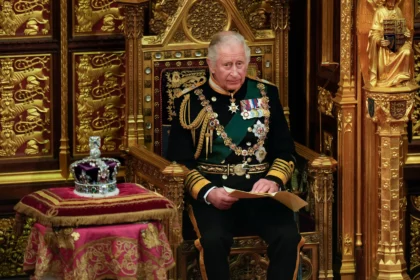The Pentagon has publicly criticized Netflix for allegedly spreading misinformation in its newly released film, A House of Dynamite, directed by Kathryn Bigelow. The defense department claims the movie “significantly misrepresented” America’s missile-defense system and was produced without any official communication or consultation.
The action-thriller, which dramatizes an 18-minute window following the detection of a missile launch targeting the United States, depicts a frantic race inside Washington, D.C., as Pentagon officials scramble to respond.
One scene in particular drew sharp criticism — a character suggests that the missile-defense system has only a 50% success rate, despite its enormous cost.
However, according to an internal memo from the Missile Defense Agency (MDA) obtained by Bloomberg News, real-world testing for ground-based interceptors has maintained a “100 percent accuracy rate… for more than a decade.”
The memo argues that while the film builds suspense through its depiction of failure and panic, it also “downplays U.S. capabilities” and misleads the public about America’s defense readiness.
In a statement to The Independent, the Pentagon confirmed that it was not consulted during the film’s production and clarified that the on-screen events “do not reflect the views or operational priorities of the current administration.”
“The missile-defense system remains a critical component of our national defense strategy, ensuring the safety and security of the American people and our allies,” the statement added.
Director Kathryn Bigelow, known for Zero Dark Thirty and The Hurt Locker, has since acknowledged that she did not seek Pentagon input, saying she chose to work independently for creative freedom. She added that the production relied on technical advisers with prior Pentagon experience rather than official consultation.
Despite the controversy, A House of Dynamite has received a 79% approval rating from critics on major aggregator sites. Still, the Pentagon has urged viewers to distinguish fiction from fact, warning that the movie’s portrayal “deviates enormously” from real military data and established protocols.
The debate over artistic license versus factual representation continues — but for now, Netflix’s explosive thriller has managed to ignite both tension on-screen and controversy off it.




